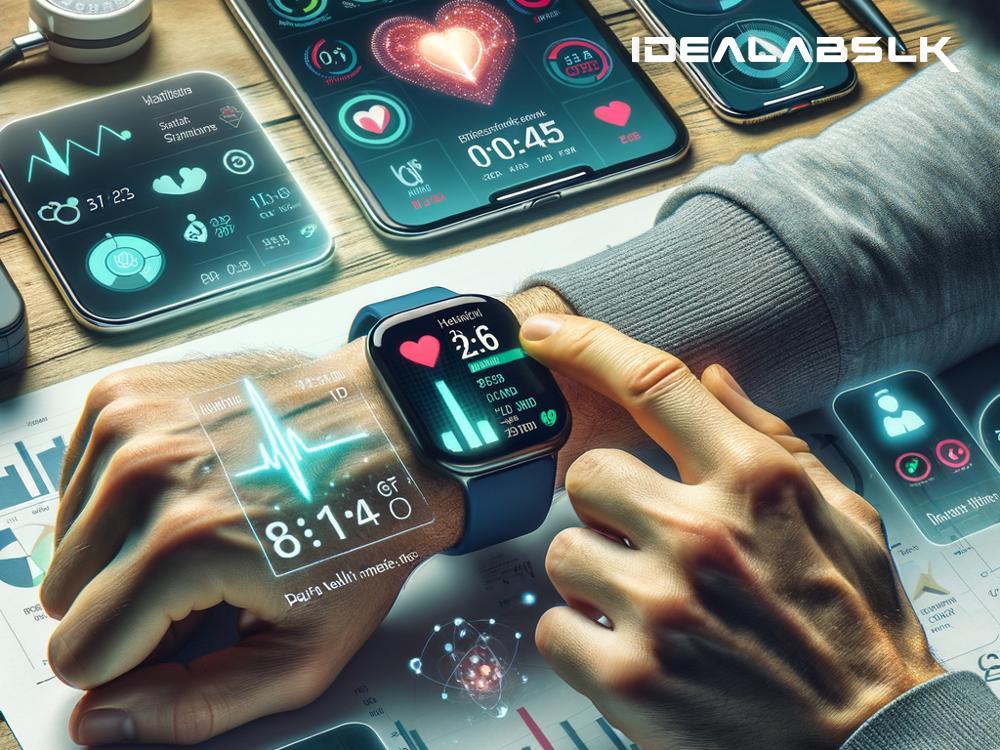Using Technology to Manage Chronic Conditions: The Best Devices and Apps for Long-Term Health Monitoring
Living with a chronic condition can be like having a full-time job. Between doctors' appointments, medication schedules, and the constant monitoring of symptoms, it’s a lot to manage. Luckily, in today's digital world, there's a wide array of technology designed to make managing chronic conditions a bit easier. Let’s delve into some of the best devices and apps that can help you keep your health in check over the long term.
Smart Health Watches
Smart health watches, like the Apple Watch or Fitbit, are more than just trendy accessories. They are powerful tools for monitoring your health. These watches can track your heart rate, measure blood oxygen levels, and even detect if you've taken a hard fall. For people with heart conditions or those at risk of falls, these features can be lifesavers. Additionally, they monitor your activity levels, encouraging you to stay active and helping you to achieve your fitness goals, which is crucial for managing conditions like diabetes and obesity.
Blood Pressure Monitors
For those managing hypertension or heart disease, keeping an eye on your blood pressure is critical. Modern blood pressure monitors are compact, easy to use, and smart. Devices like the Omron Evolv are wireless and can sync data directly to your smartphone, allowing you to track your readings over time and share this information with your healthcare provider directly.
Glucose Monitors
Managing diabetes requires keeping a close eye on your blood sugar levels. Continuous glucose monitors (CGMs) like the Dexcom G6 and the Freestyle Libre have revolutionized diabetes care. These devices continuously track your glucose levels and send the information to your phone or smartwatch. This means you can see how your glucose levels change throughout the day without the constant finger pricks, making it easier to manage your condition.
Medication Management Apps
Forgetting to take your medication, or taking it at the wrong time, can be dangerous, especially for people with chronic conditions. Medication management apps, such as Medisafe or MyTherapy, help by sending you reminders when it's time to take your medication. They can also track your prescriptions and advise when it's time for a refill, ensuring you never run low.
Mental Health Apps
Chronic conditions can take a toll not just on your physical health, but your mental well-being too. That’s where mental health apps come in. Apps like Headspace and Calm offer guided meditation and mindfulness exercises to help reduce stress and improve your mood. Meanwhile, mood tracker apps such as Daylio allow you to log your emotions and activities, helping identify patterns or triggers in your mood swings, which is especially useful for those managing mental health conditions like depression or bipolar disorder.
Sleep Trackers
Getting a good night’s sleep is crucial for everyone, but it’s even more important when you have a chronic condition. Sleep affects our mood, energy levels, and overall health. Devices like the Fitbit or apps like Sleep Cycle analyze your sleep patterns, helping you understand your sleep quality. They offer insights into how you can improve your sleep, contributing to better health management overall.
Diet and Nutrition Apps
Diet plays a significant role in managing chronic conditions. Apps like MyFitnessPal help you monitor your food intake by tracking calories, nutrients, and your overall diet. These apps can be particularly helpful for people with conditions like diabetes, heart disease, or obesity, helping them make healthier food choices.
The Bottom Line
Technology has come a long way in helping individuals manage their chronic conditions. From wearable devices that keep track of your physical activity and vital signs to apps that remind you to take your medication, there's a plethora of tools out there designed to make your life easier. However, it's important to remember that while these devices and apps offer valuable support, they should not replace professional medical advice. Always consult with your healthcare provider about using technology as part of your health management plan.
In the end, embracing these technologies can empower you to take control of your health, providing peace of mind and enabling you to lead a fuller, more active life despite your chronic condition.

